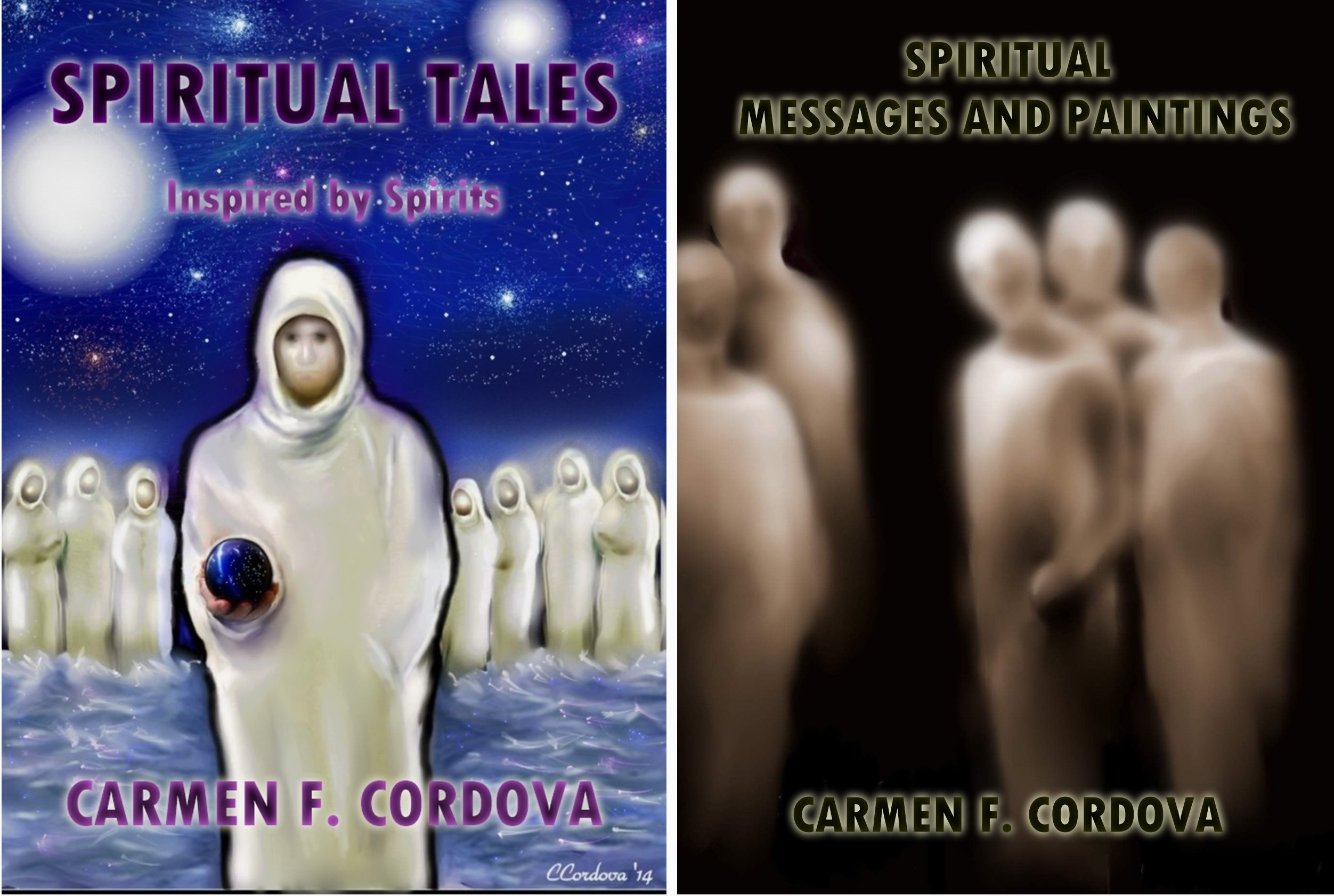Is Reincarnation Real ?
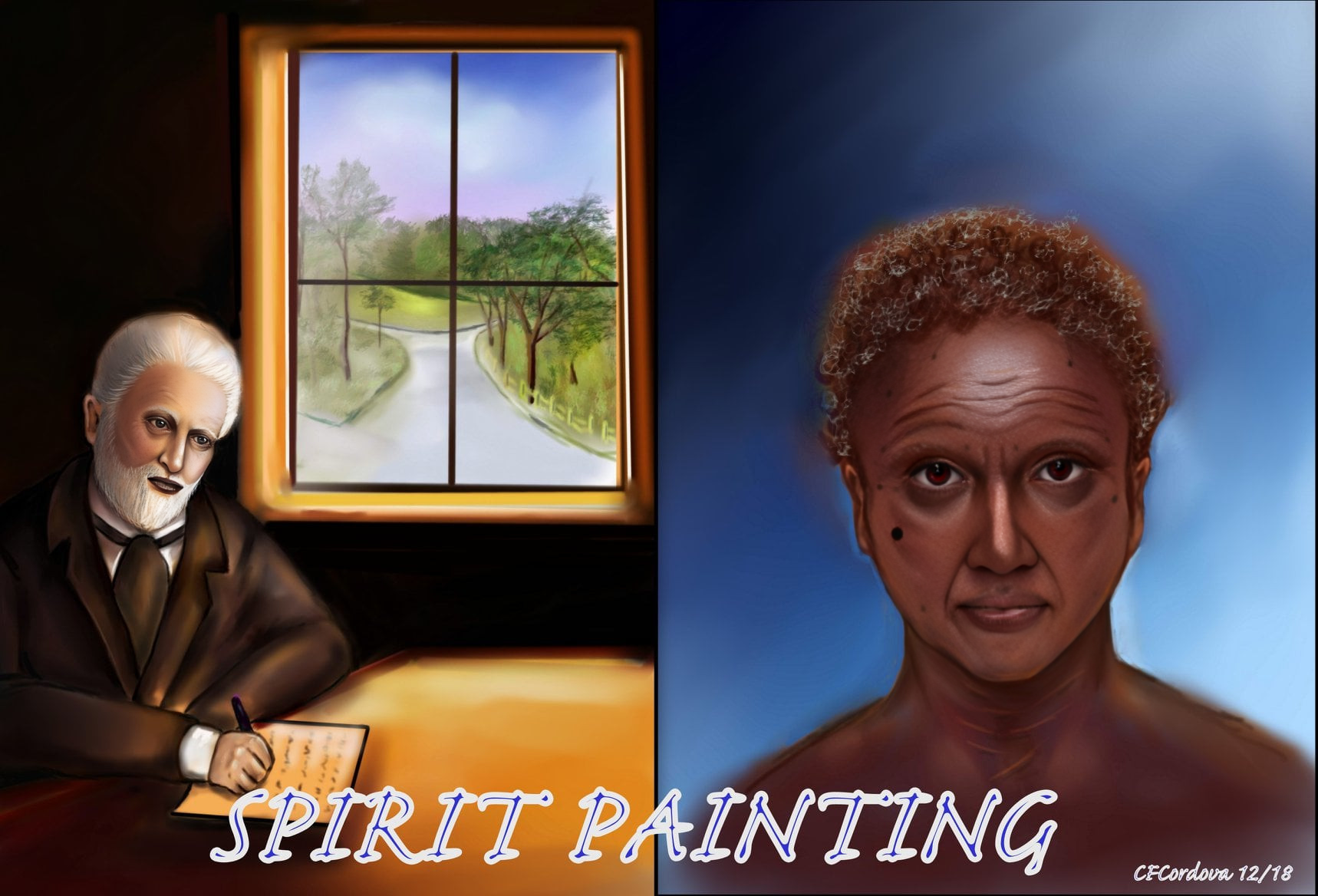 Is reincarnation real? You decide!
Is reincarnation real? You decide!Is reincarnation real? Is such a thing possible? Let us explore the topic a bit.
Reincarnation is the belief that our soul is reborn into new bodies after death. This article will explore the concept of reincarnation, its origins in various cultures, and more.
Is Reincarnation Real?
Understanding Reincarnation
Facts, Beliefs, and Evidence
Reincarnation is the belief that the soul is reborn into a new body after death. Different cultures and religions have supported this idea throughout history. Essentially, reincarnation suggests that the soul starts a new life in another form after leaving the physical body. This cycle of birth, death, and rebirth signifies spiritual growth and moral improvement.
The term ‘reincarnation’ itself comes from the Latin prefix ‘re-‘ meaning ‘again’ and ‘incarnate,’ meaning ‘to make flesh,’ illustrating the idea of the soul taking on new physical forms again and again. In many belief systems, the ultimate goal of reincarnation is to achieve spiritual growth and a deeper understanding of one’s true self. This journey through various lifetimes lets the soul learn, grow, and eventually move beyond the cycle of rebirth. Reincarnation indicates the soul's eternal journey and its purpose for spiritual growth or karmic development.
In Hinduism, for example, the cycle of reincarnation is shaped by the law of karma, where one's actions in past lives determine the quality of the new life. Good deeds result in favorable rebirths, while bad deeds cause less desirable outcomes. This idea of personal karma connects one's current life to previous lives and future incarnations, highlighting each person's moral responsibility.
The belief in reincarnation also suggests that the immortal soul is everlasting, continuing its existence through different forms and experiences. This idea of an unending soul is key to many religious and scholarly beliefs, offering a way to understand the ongoing nature of consciousness and the connection among all living things.
Exploring the various facets of reincarnation allows us to appreciate the spirit world and understand how our actions shape our destiny.
Historical Perspectives on Reincarnation
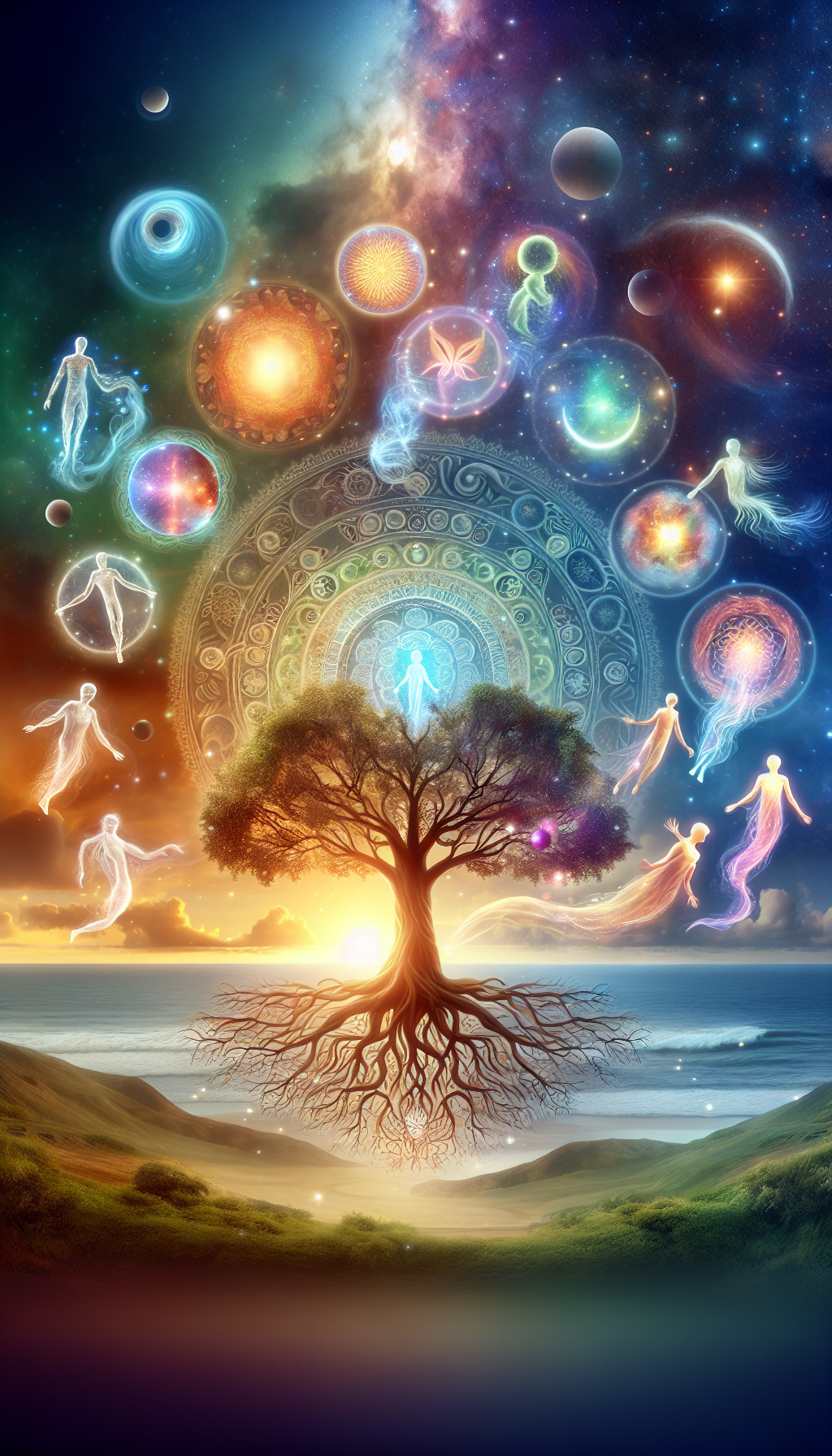 reincarnation - past lives by Tai
reincarnation - past lives by TaiThe concept of reincarnation has deep historical roots, tracing back to various ancient civilizations and traditions. Some of the earliest references to reincarnation can be found in the Vedic texts of India, including the Rigveda and the Upanishads, dating back to around 1100 to 500 BCE. These texts introduced the idea of the soul's transmigration and set the foundation for later religious and philosophical thought in India.
In ancient Greece, philosophical discussions about reincarnation emerged as early as the 6th century BCE through figures like Pythagoras and Plato. Pythagoras, for instance, believed that the soul was immortal and transitioned into another body after death. Plato further elaborated on this idea, suggesting that the soul's journey through various lifetimes was a process of learning and purification.
The Orphic religion, which began around the same time, also incorporated beliefs in reincarnation and the liberation of the soul. Orphism taught that the soul was trapped in a cycle of rebirth and needed to undergo purification to achieve liberation. These early scholarly traditions in India and Greece show that discussions about reincarnation were common by the 6th century BCE.
In Europe, Celtic druids believed in the immortality of the soul and taught that it transitioned into another body after death. This belief was integral to their spiritual practices and rituals. Similarly, during the Renaissance, there was a renewed interest in reincarnation, sparked by the translation of classical texts. Philosophers were influenced by these ancient ideas, leading to a renewal of reincarnation beliefs in Western thought.
These historical perspectives show how the idea of reincarnation has been a recurring theme in human thought, crossing cultural and time boundaries. Looking at these early beliefs helps us understand the basic ideas shaping our view of the soul's journey through past, present, and future lives.
Historical accounts also include instances in which children exhibited specific memories or skills linked to a previous life, further prompting exploration of the concept of reincarnation.
Links
Major Religions Advocating Reincarnation
The belief in reincarnation is a fundamental aspect of nearly all key religions, particularly those originating in the East. Hinduism, Jainism, and Buddhism, often referred to as the Indian religions, all incorporate reincarnation into their spiritual doctrines. Each of these religions has its own unique interpretation of the cycle of rebirth and the role of karma in shaping one's future incarnations.
These beliefs highlight that a human's soul persists after death and can be reborn in new forms.
In Hinduism, reincarnation is supported by ancient texts like the Rigveda and the Bhagavad Gita, which emphasize the importance of karma in determining one's future.
Jainism, on the other hand, places foremost importance on the soul's eternal nature and its journey through various lifetimes.
Buddhism sees reincarnation as a continuous flow of consciousness, highlighting that past actions shape future awareness.
These chief religions differ in their specific beliefs and practices related to reincarnation, but they all share a common understanding that the soul or consciousness continues its journey through multiple lifetimes. Understanding these beliefs helps us appreciate the spiritual world and the moral implications of our actions
Hinduism and Karma
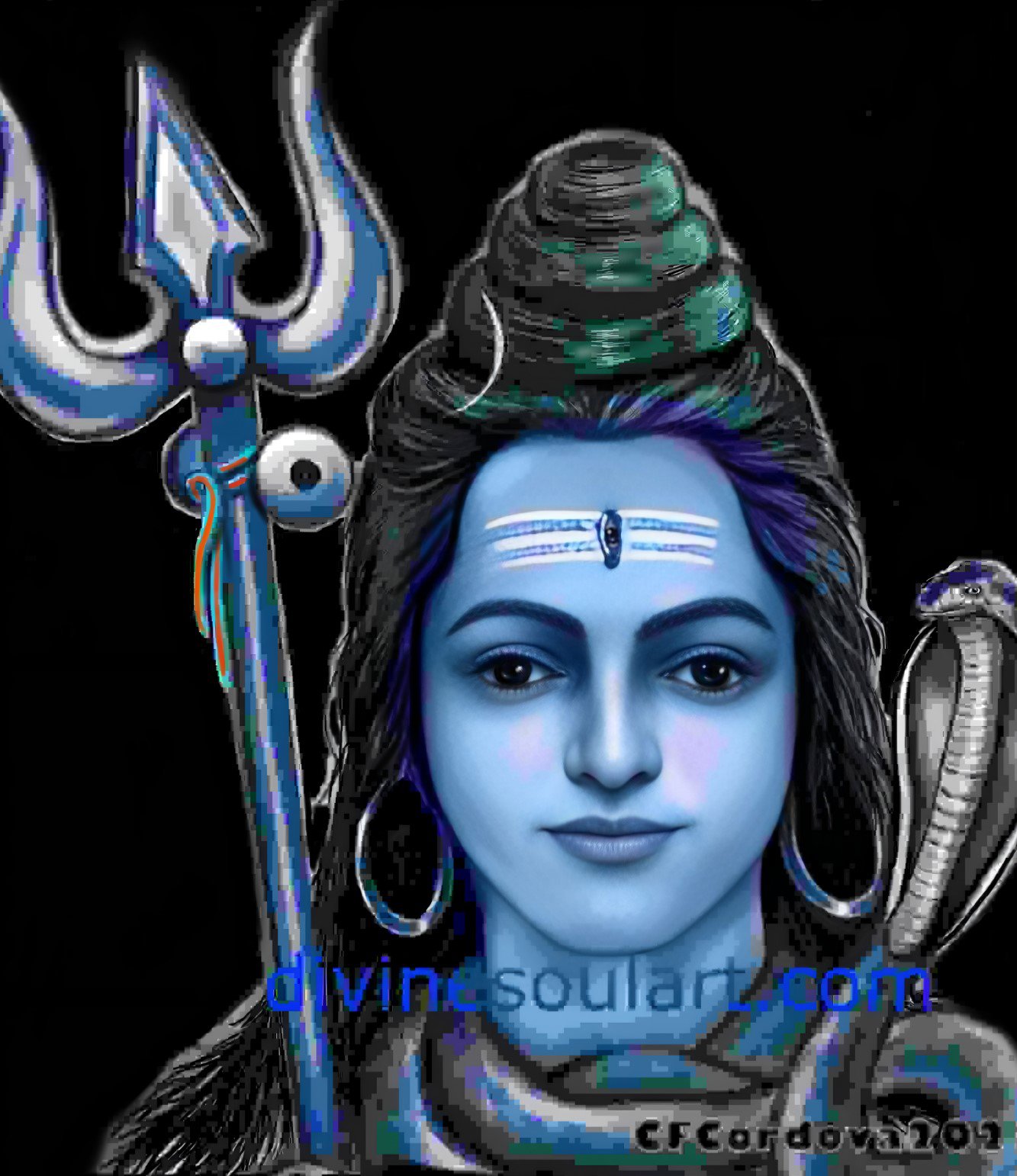
In Hinduism, the cycle of reincarnation is deeply intertwined with the concept of karma. The term karma refers to the actions and their subsequent consequences that determine the quality of one's future life. According to Hindu beliefs, every action, whether good or bad, contributes to one's own personal karma, shaping one's destiny in future incarnations.
The Bhagavad Gita, one of Hinduism's most revered texts, explains that the soul is eternal and undergoes a continuous process of rebirth until it achieves moksha or liberation from the cycle of birth and death. This liberation is attained through spiritual practices, ethical living, and self-realization. The ultimate goal is to transcend the cycle of reincarnation and unite with the divine.
Hinduism teaches that a person's soul, or atman, is part of a universal soul, or Brahman. This interconnectedness emphasizes the importance of moral actions and spiritual development in each lifetime. The law of karma ensures that individuals are held accountable for their actions, encouraging them to live ethically and seek spiritual enlightenment, while also recognizing the connection to human souls.
The belief in reincarnation and karma forms the foundation of Hindu ethical teachings, guiding individuals to strive for a better rebirth and ultimately achieve liberation. This perspective on reincarnation highlights the profound impact of one's actions on one's future lives and underscores the importance of spiritual development in Hindu philosophy.
Jainism and Eternal Souls
 Previous life
Previous lifeJainism attributes supreme importance to the concept of eternal souls and the cycle of reincarnation. According to Jain beliefs, the soul is eternal and undergoes numerous rebirths based on its karma. Karma is considered a central and fundamental part of Jainism, deeply linked to transmigration and reincarnation.
Jain philosophy posits that both spirit and matter undergo changes but do not experience total annihilation. This idea underscores the continuity of existence and the perpetual journey of the soul through various lifetimes. The soul's actions in one life directly influence its future incarnations, with good deeds leading to favorable rebirths and evil deeds resulting in less desirable outcomes.
In Jainism, there are four states of existence. These include:
- Deva (gods)
- manussya (humans)
- nraki (hell beings)
- tiryaca (animals and plants) in the animal and vegetable world.
These states represent the different forms that the soul can take based on its karma. The ultimate goal in Jainism is to achieve liberation from the cycle of birth and biological death, known as moksha, through ethical living, self-discipline, and spiritual practices.
Jain texts emphasize the importance of personal karma and the impact of one's actions on future incarnations. Adhering to these principles allows individuals to work towards their salvation and eventually achieve eternal life in a state of bliss.
Buddhism's Stream of Consciousness
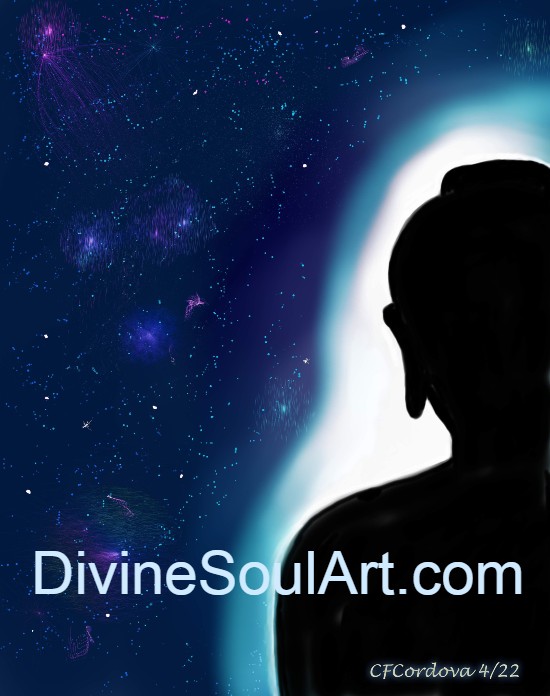
Buddhism presents a unique perspective on reincarnation, focusing on the concept of the stream of consciousness rather than a permanent soul. According to Buddhist teachings, rebirth is not a literal reincarnation of the self, but rather a continuation of consciousness shaped by past actions.
In Buddhism, the stream of consciousness is an ongoing flow of mental processes that are influenced by previous experiences and actions. This perspective emphasizes the dynamic nature of existence, where there is no permanent self that continues after death. Instead, it is the continuity of consciousness that links one life to the next, forming a causal continuum.
The ultimate goal in Buddhism is to achieve Nirvana, a state of liberation from the cycle of birth and death. This is attained through the practice of ethical living, meditation, and the development of wisdom and compassion. Understanding the nature of consciousness and the law of karma enables individuals to break free from the cycle of rebirth and attain spiritual enlightenment.
Buddhism's view on reincarnation provides deep insight into the nature of existence and how all living beings are interconnected. It questions the idea of a permanent self and encourages people to stay present and develop positive mental states.
Reincarnation in Western Religions
Reincarnation is a concept that has seen varying degrees of acceptance and rejection within Western religions. Historically, Christianity has generally rejected reincarnation, although some early Church figures, like Origen, are thought to have entertained the idea. Over time, these beliefs were condemned by official doctrine, and reincarnation became a fringe belief within Christianity.
In medieval Judaism, the mystical tradition of Kabbalah introduced the concept of gilgul, which refers to the transmigration of souls. This belief, which is central among Kabbalists, views reincarnation as a process of soul refinement and rectification. Although traditional Judaism does not emphasize reincarnation, certain mystical movements have incorporated it into their teachings.
Islam, on the other hand, generally rejects reincarnation, teaching that each person lives only once and will be judged after death. However, certain sects within Islam, such as the Ghulat Shia sect, have beliefs that their founders were divine incarnations. Some modern Sufis also embrace the idea of reincarnation, viewing it as part of a broader spiritual journey.
Despite these mainstream rejections, several Western religious groups have integrated reincarnation into their beliefs. These include the Cathars, Alawites, Hassidics, Druze, Kabbalistics, Rastafarians, and Rosicrucians. These groups often view reincarnation as a necessary part of spiritual evolution, aligning their beliefs with those of Eastern traditions.
The presence and rejection of reincarnation in Western religions highlight the diverse interpretations and evolving perspectives on the soul's journey. Examining these beliefs provides insight into how different cultures and religious movements have grappled with the concept of eternity and the moral implications of our actions.
Cultural Influences on Reincarnation Beliefs
Cultural influences play a significant role in shaping beliefs about reincarnation. Eastern religions, such as Hinduism, Buddhism, and Jainism, tend to embrace reincarnation as a philosophical idea and an integral part of their spiritual doctrines. These traditions often view reincarnation as a way to eliminate individual identity and achieve spiritual evolution.
In contrast, Western religions generally reject reincarnation, focusing instead on a single lifetime and an afterlife judged by a divine being. However, Western spiritual groups and new religious movements have increasingly integrated the idea of reincarnation, often merging it with contemporary philosophies and personal growth practices. Influential figures, such as Paramahansa Yogananda, have introduced Indian reincarnation views to the West, emphasizing the need to transcend physical desires and achieve spiritual enlightenment.
African traditions present distinct viewpoints on the afterlife and reincarnation. In the Kongo tradition, there is a significant emphasis on ancestral transmigration. This belief holds that a person's spirit—referred to as the ancestor—transfers its essence or specific qualities to their descendants. Instead of viewing this process as the continuous rebirth of the soul into new physical forms, the Kongo tradition sees it as a way for the enduring influence of ancestors to be felt through their living family members.
The diverse cultural interpretations of reincarnation highlight the universal quest for understanding the afterlife and the soul's journey. By examining these influences, we can appreciate the rich tapestry of beliefs that shape our views on reincarnation and its impact on our lives.
Personal Accounts of Past Lives
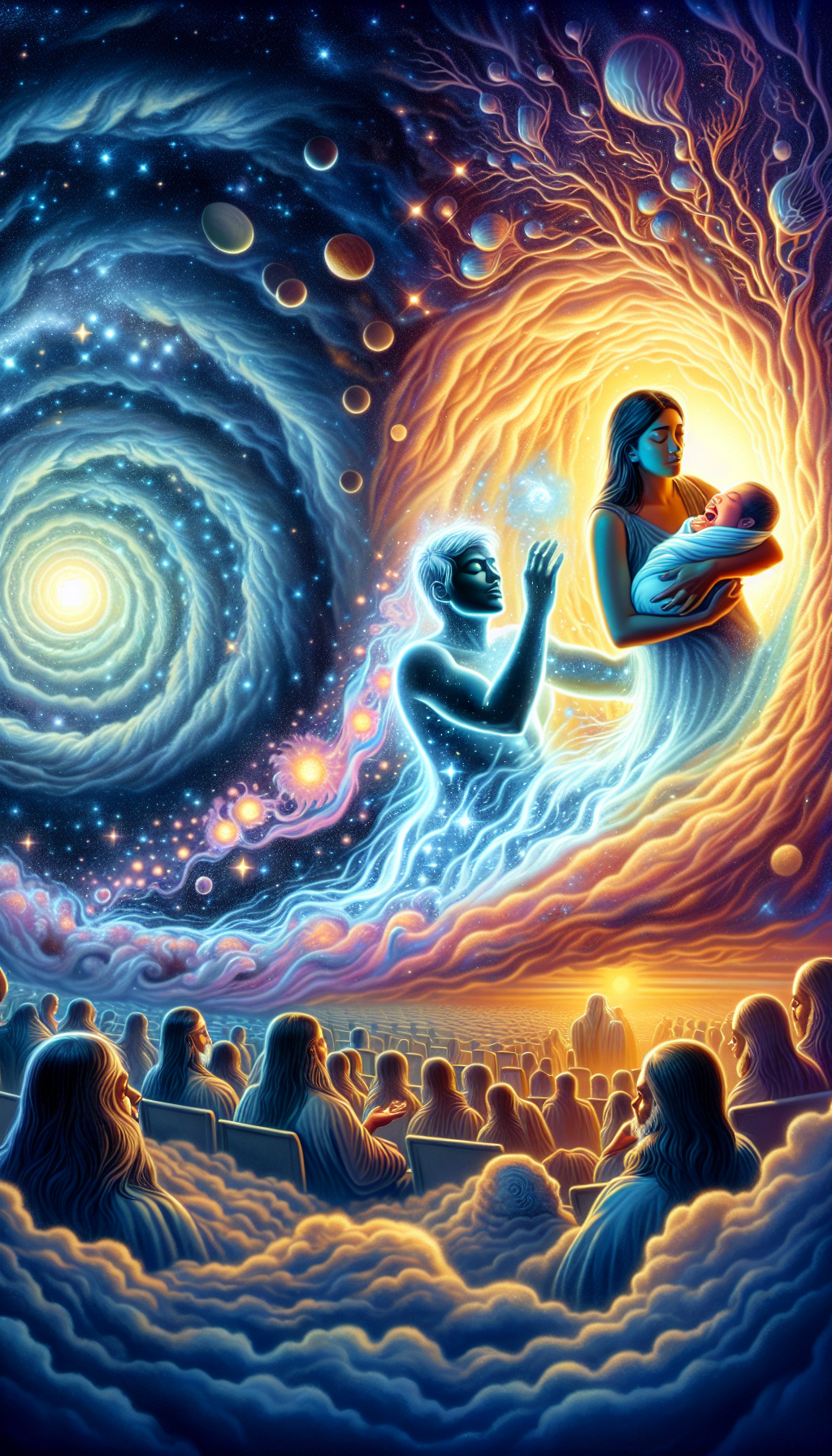 Previous life
Previous lifePersonal accounts of past lives provide compelling narratives that support the belief in reincarnation. Over 40 years, Ian Stevenson investigated around 3,000 cases of children who claimed to recall past lives. These children often provided specific names, places, and events that could be verified, lending credibility to their accounts.
One notable case is that of a young boy named James Leininger, who claimed to remember details of a past life as a fighter pilot during World War II. James’ memories included specific information about aircraft, missions, and fellow pilots, which were later corroborated by historical records. Such accounts challenge conventional explanations and suggest the possibility of former life recall.
Stevenson's book “Reincarnation and Biology” detailed cases where children's birthmarks and physical anomalies corresponded to wounds or marks on deceased individuals they claimed to remember. These physical correlations provide intriguing evidence supporting the idea of reincarnation and the transfer of past-life memories.
Skeptics argue that many past life claims can be attributed to human imagination, exposure to media about reincarnation, or faulty memories. However, the precise details of some accounts make them difficult to dismiss entirely. While many people do not recall past lives, those who do often describe vivid and detailed memories of previous existences.
These personal stories of past lives offer a fascinating glimpse into the mysteries of reincarnation. The vast majority of individuals who have remembered past lives often describe vivid memories of dying in violent or unnatural circumstances, which may explain certain phobias and fears in their present life. They challenge us to consider the possibility that our souls have lived multiple lifetimes and that our current life is just one chapter in a much larger journey.
Characteristics of People Who Remember Past Lives
People who remember past lives often exhibit a fascinating array of characteristics that set them apart. These individuals frequently possess a strong sense of intuition and psychic ability, allowing them to perceive things beyond the ordinary. This heightened awareness often translates into a deep sense of empathy and compassion for others, as they feel a profound connection to the human experience across different lifetimes.
One of the most intriguing aspects of those who recall past lives is their unusual skills or abilities that seem to stem from their previous existence. For instance, some may speak a language fluently that they have never learned in their current life, or demonstrate expertise in a particular craft or profession that aligns with their past life memories. This phenomenon suggests a continuity of knowledge and skills across lifetimes.
A strong sense of déjà vu or familiarity with certain places, events, or people is another common trait among those who remember past lives. These individuals often feel an inexplicable connection to locations they have never visited before or recognize people they have never met in their current life. This sense of familiarity can be both comforting and perplexing, adding to the mystery of past life recall.
Dr. Jim Tucker, a psychiatrist and past-life researcher at the University of Virginia, has noted that people who remember past lives often have a higher level of spiritual awareness and a stronger sense of connection to their past life. This spiritual awareness can lead to a greater sense of purpose and meaning in their current life, as they feel guided by the lessons and experiences of their former existence.
Additionally, these individuals tend to exhibit a greater sense of resilience and adaptability, likely stemming from their accumulated experiences across multiple lifetimes. They often have a strong sense of self-awareness and a deep connection to their ancestors and cultural heritage, which enriches their understanding of their place in the world.
In summary, people who remember past lives offer a unique perspective on the continuity of human consciousness. Their heightened intuition, empathy, and unusual abilities provide compelling evidence of the interconnectedness of past and present lives, enriching our understanding of the human soul's journey.
Reincarnation and Moral Behavior
Reincarnation beliefs often have a profound impact on moral behavior, shaping ethical teachings and guiding individuals toward more compassionate and empathetic actions. In Hinduism, Buddhism, Jainism, and Sikhism, reincarnation serves as a foundational belief that influences their ethical frameworks.
Such beliefs encourage individuals to act with compassion, empathy, and ethical integrity, considering the impact of their actions on future lives.
The doctrine of karma is closely linked to reincarnation, suggesting that one's moral actions directly influence one's future incarnations. This belief encourages individuals to act with compassion, empathy, and ethical integrity, as they consider the impact of their actions on their future lives. The fear of unfavorable reincarnation outcomes, such as being reborn into a lower form of existence, motivates people to strive for virtuous behavior.
In Jainism, the emphasis on liberation from the cycle of birth and death is achieved through ethical living and self-discipline. Jains believe that by practicing non-violence, truthfulness, and other ethical principles, they can purify their karma and attain spiritual liberation. The concept of seeking forgiveness for wrongdoings is also prevalent in Jainism, as individuals strive to rectify past mistakes and improve their karma.
The influence of karma on present identities and actions highlights the interconnectedness of past, present, and future lives. Understanding the moral implications of reincarnation encourages individuals to live ethically, seek forgiveness, and cultivate humility.
Reincarnation's impact on moral behavior underscores the importance of ethical living and spiritual development in many Eastern religions. Considering the consequences of our actions on future incarnations reminds us of our responsibility to act with integrity and compassion.
Modern Religious Movements and Reincarnation
Modern religious movements have embraced reincarnation as part of their doctrines, often incorporating unique interpretations that emphasize personal growth and transformation. New religious movements universally embrace the belief in reincarnation, viewing it as part of a larger spiritual evolution, including some religions that believe in the transmigration of souls.
Osho, a contemporary spiritual teacher, explains that life emerges when existence reflects on itself, with the mind being a collection of memories linked to reincarnation. This perspective highlights the dynamic nature of existence and the interconnectedness of past, present, and future lives.
Esoteric traditions such as Theosophy and Anthroposophy promote the idea of reincarnation as part of a broader spiritual evolution. These traditions suggest that the soul undergoes multiple lives to achieve spiritual development and enlightenment. For instance, Theosophists believe that reincarnation is crucial for the soul's growth and that extended periods between incarnations allow for reflection and learning. These esoteric traditions have influenced contemporary spiritual movements,
Contemporary spiritual movements, such as Scientology, incorporate unique interpretations of reincarnation that emphasize personal growth and transformation. Scientology views reincarnation as part of the journey toward spiritual freedom and self-discovery, encouraging individuals to explore their past lives to understand their present experiences and future potential.
The integration of reincarnation into modern religious movements reflects a broader trend of blending Eastern and Western spiritual perspectives. These movements provide new mystical insights into the soul's journey, highlighting the significance of personal growth, ethical living, and spiritual development.
Summary
Reincarnation is a concept that transcends cultures, religions, and philosophies, offering a profound perspective on the soul's journey through multiple lifetimes. From its historical roots in ancient civilizations to its integration into modern spiritual movements, reincarnation continues to captivate and inspire.
Major religions such as Hinduism, Jainism, and Buddhism offer distinct interpretations of reincarnation, emphasizing the role of karma in shaping future lives. Despite its challenges, scientific research offers intriguing evidence supporting the possibility of recall of a previous life. Personal accounts of past lives add a human dimension to the discussion, providing compelling narratives that challenge conventional explanations.
The philosophical traditions and moral implications of reincarnation invite us to consider the nature of the soul, personal identity, and the impact of our actions on future incarnations. As we explore these ideas, we are reminded of the interconnectedness of all life and the importance of ethical living and spiritual growth.
Click below and views more than 600 pieces of spiritual artwork

Spiritual Books
If you enjoy the articles on this website, you will also appreciate the short stories in the books below. Click here and continue the journey.
